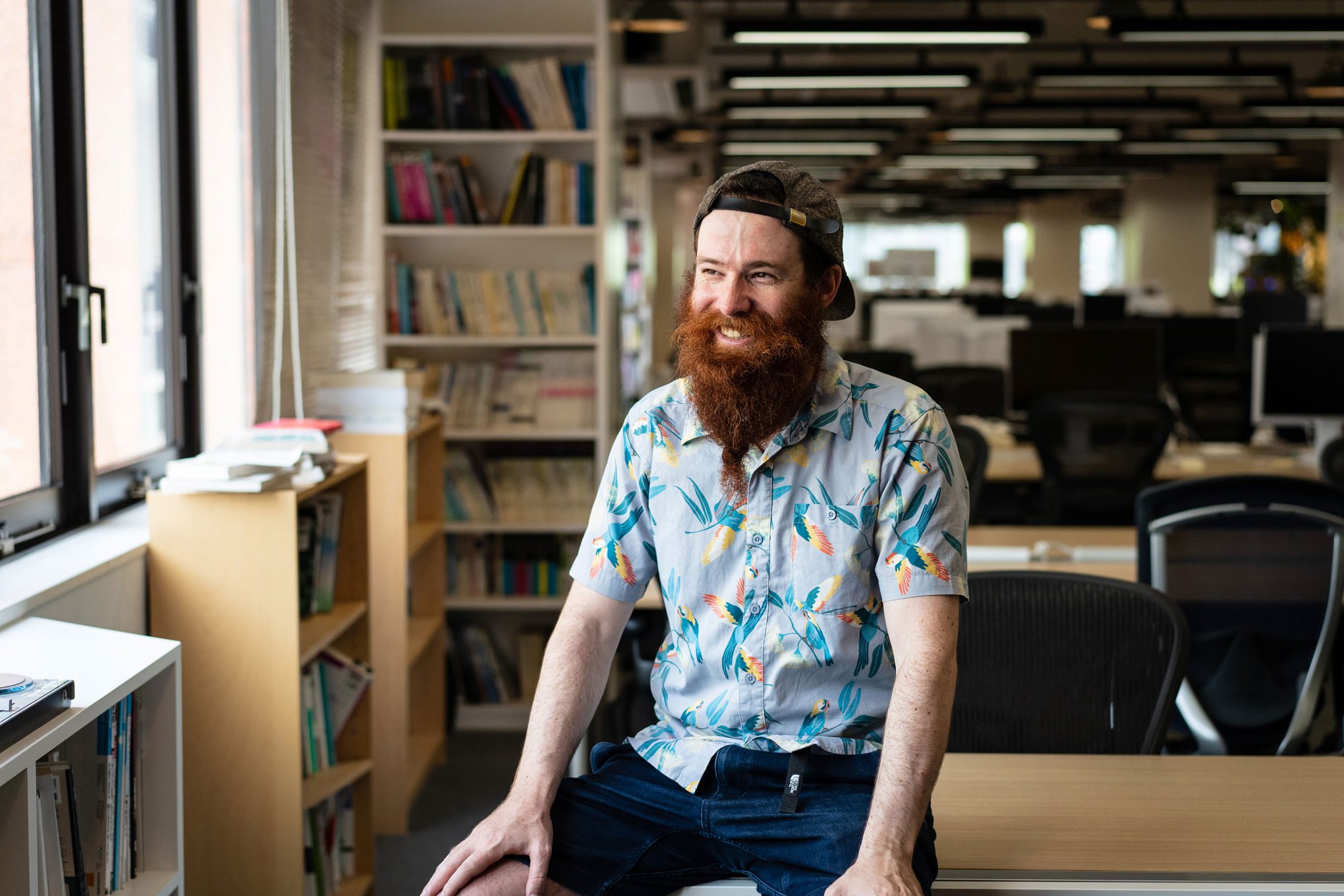
From English teacher to engineering manager
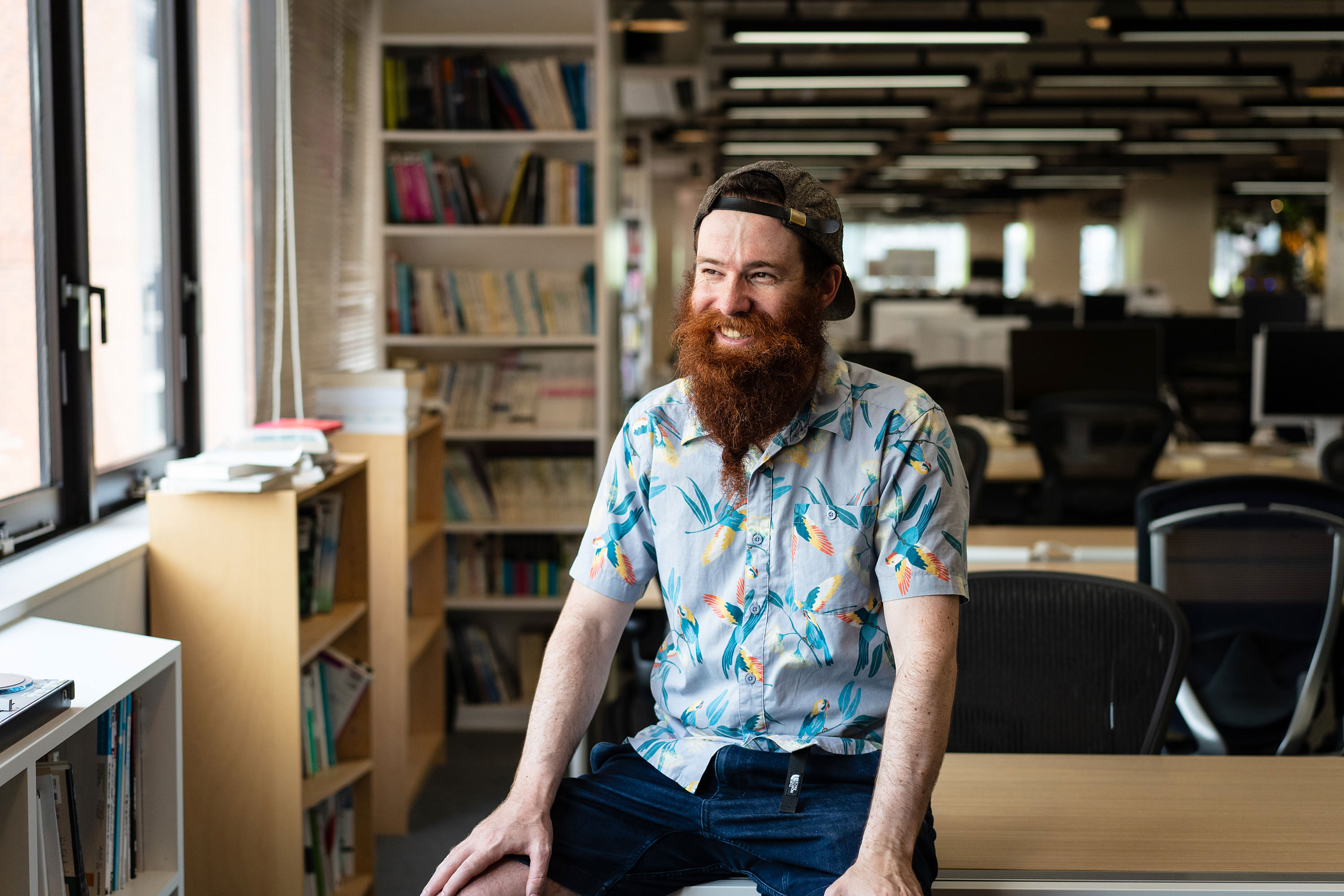
When did you join SmartNews?
I joined SmartNews in July of 2020.
Tell us a little bit about your background before joining SmartNews.
I think within the engineering space I may have a slightly unique background. I originally studied Japanese and economics in college and had no plans for an engineering career. I moved to Japan to work as an assistant language teacher– as an ALT– and spent four years in Miyazaki Prefecture down in Kyushu. It was a great opportunity to work in a Japanese workplace and also get an introduction into what it takes to manage and motivate a group of people, albeit on a much younger scale. I knew I didn’t want to be a teacher forever (too much pressure!), so I spent my free time doing online coding courses and working on my own projects. This allowed me to transition into my current career in engineering.
What are some of the factors that motivated you to switch career tracks into engineering?
So I’d say there were three main factors. The first factor was that my brother was an engineer and he also transitioned from a totally separate career to software engineer, so I knew that transitioning to this career was possible. The second one was that I knew I didn’t want to go back to school, and so I was looking for a career that was open to self-starters. I was literally living in the mountains and needed something I could teach myself with just an internet connection and a little luck. The third was related to the lifestyle I wanted in the future. Software development is a very well-paying industry and there will always be jobs available no matter where you are in the world. I’ve now been in Japan for over ten years, but at that point, I was still considering returning to the United States.
Could you tell us more about how you utilized your biculturalism as well as your engineering skills after making this career transition?
At my first company, my role was very loosely defined since the company was so small. I would help out wherever there was a role that needed to be filled. We were established but still small with only six or seven full time employees, but we were working on a fairly big, international product. Don’t quote me on this, but I think I was the only English/Japanese speaker when I joined. So I started my career both writing code and releasing small features to production while also handling customer support, working on localization, SEO, and supporting the company at events where we would pitch our product and the company to investors. As you can see, the language aspect was very beneficial from the beginning.
On the flipside, at my next company we were targeting a Japanese market and Japanese users. The work language was all in Japanese as well. My language abilities were beneficial in certain specific situations like translating for the English language version of our app, but overall, it wasn’t a big factor in why I was hired. I started working as an IC web developer and eventually transitioned to a team leader role when the opportunity arose.
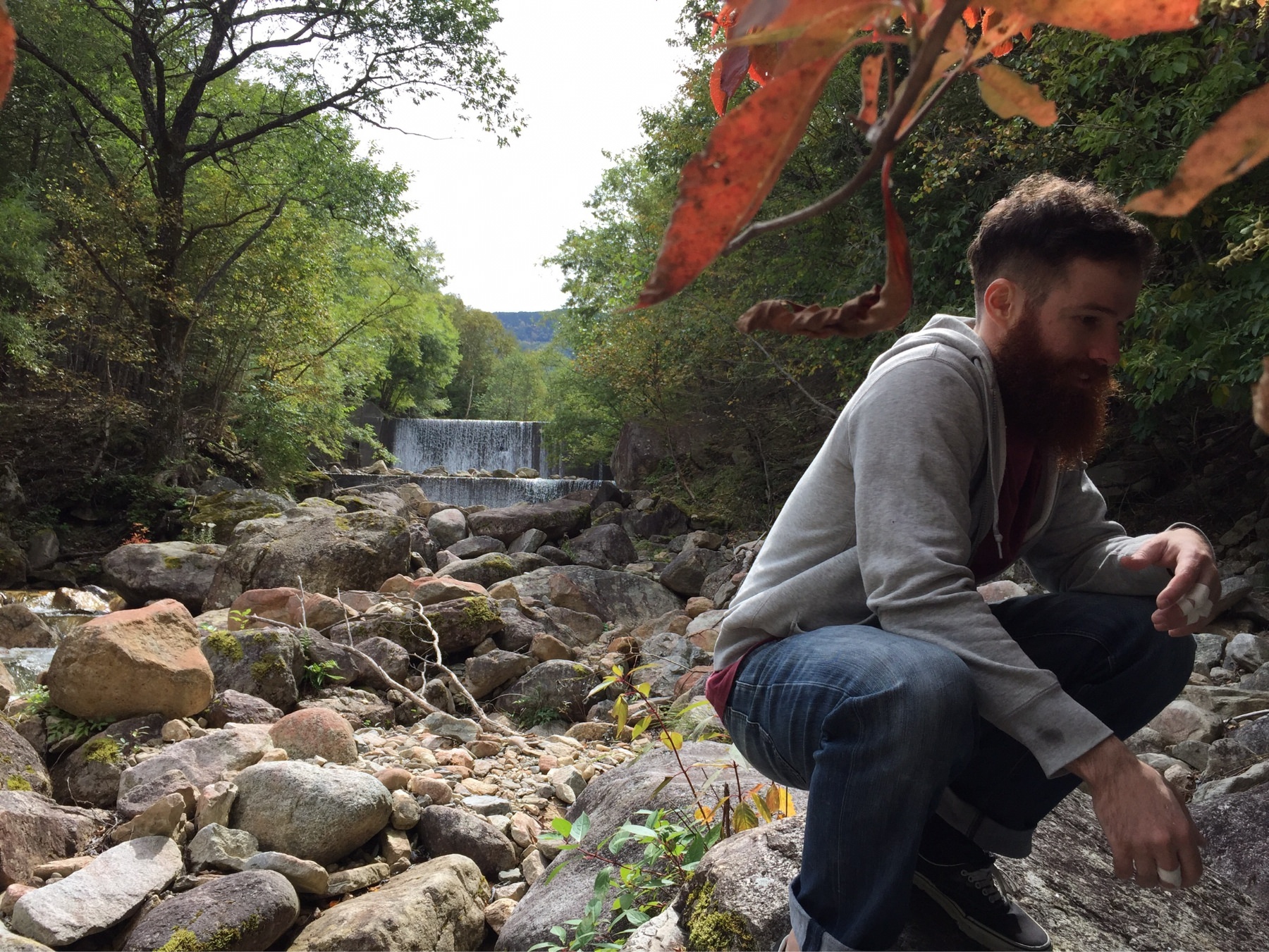
What made you interested in joining SmartNews?
I’ve known about SmartNews since I joined my first company after changing careers. It was 2015, and I was just getting my first introduction to what the engineering culture and the tech industry here in Tokyo looked like. SmartNews was still relatively small then, still in the startup phase and doing things similar to my employer at that time: doing pitch events and releasing press releases about those first user milestones and new features— basically doing all of the cool initial things young startups do. SmartNews was and continues to be one of the big success stories within the tech industry in Japan, so we were well aware of them and the product in my own company. We would see an article about a big milestone or something cool SmartNews was doing and say, “we should try something like that,” or “what’s the key to their growth right now? How can we learn from them and make our company do even better?” And so from that point on SmartNews has always been on my radar.
I actually wasn’t an avid user of the app until I began interviewing here. I generally read English language news from a few specific publications. Last year, I started seeing SmartNews come up more and more in US Techcrunch. It looked like things were going great: they had really impressive numbers and really impressive growth both in JP and the US. Then I was contacted by a recruiter about an EM position. I was immediately interested. I was at a point in my career where I wanted to challenge myself working in an international environment on a product with a much larger scale than anything I’d experienced yet. SmartNews is known for strong engineering excellence, and the role and product checked the other boxes of my career goals. The company’s mission also really resonates with me due to the current news climate in the world, and I believed that my unique skill set of engineering + multiculturalism would help bring the company to the next level.
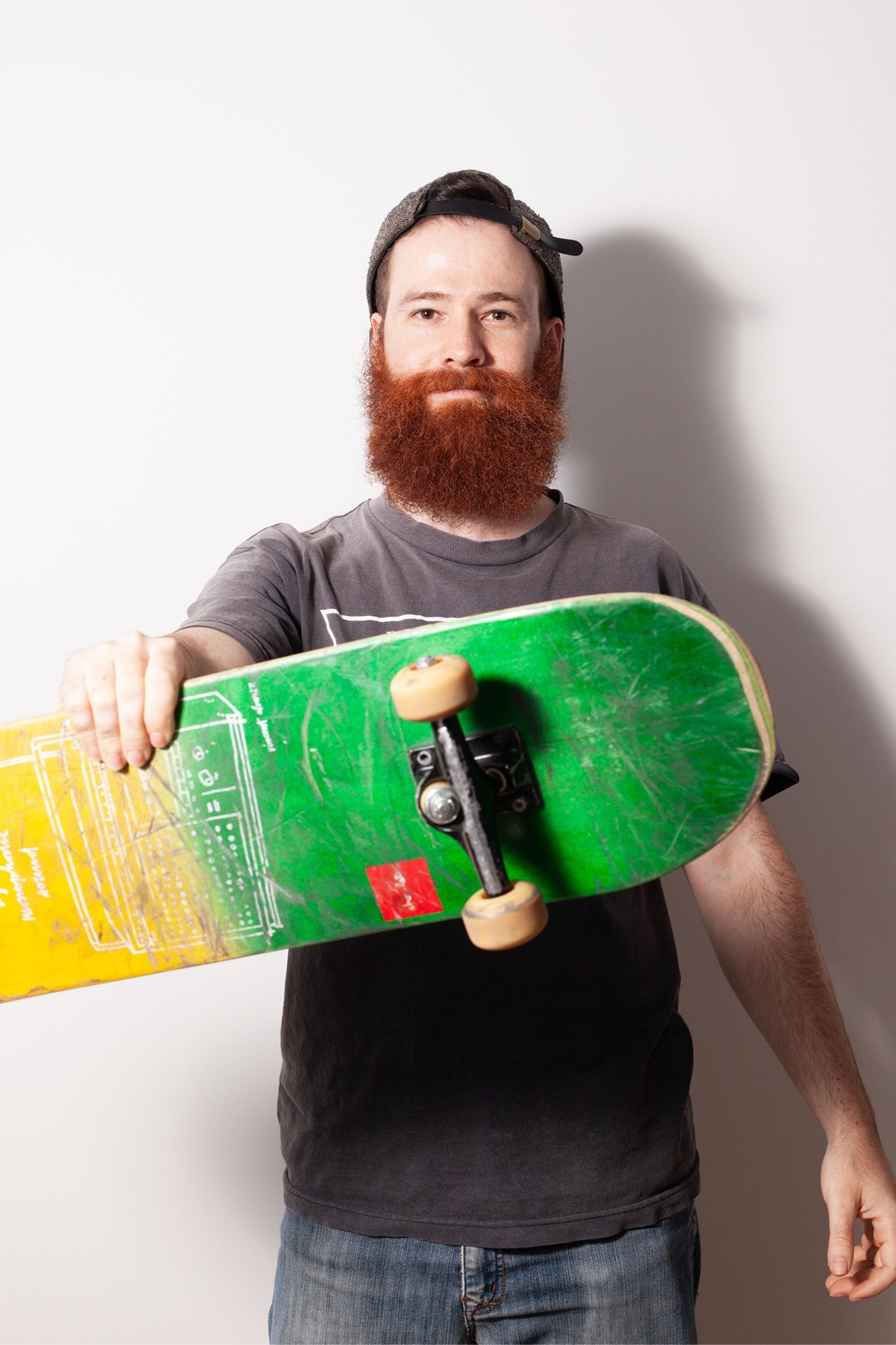
How was your experience of interviewing for SmartNews?
My initial interviews gave me a really good idea of what stage the company was currently in, what the tech stack looks like and what kinds of projects my team would be working on if I made it through the process. There were also technical interviews, where I was able to interact with and speak with different engineers from different teams within the company. It was during those conversations that I really started to feel like the level of engineering and the scale of the challenges SmartNews was trying to tackle were quite impressive.
This might be a part of our process that is slightly different from other companies, but I honestly wasn’t 100% sure of which team I would be joining until the end of the process. It was only after I received an offer that included my team assignment that I learned that one of my interviewers would also be on my team. We had a really great Q&A session. From that I already had a general image of what his day to day looked like and it was something I was excited about. My current manager also gave me a great breakdown of the team’s current situation, the products we were working on, and the plans for the next 6 months. I think I had a pretty clear picture about the current challenges and where I could bring the most value after joining.
So what team did you end up joining and what does that team do?
I am the Engineering Manager for the Growth Backend team located in our Tokyo office. We are a product-focused engineering team working on most of the big features within the JP edition of SmartNews outside of our core news products. Products we develop and maintain include the Vaccine Channel and all of our vaccine-related features, our Coupon Channel and our full suite of coupon products, our weather features like Rain Radar, Pollen Radar, Typhoon map and more. We are an international team of backend and fullstack developers representing 5 different countries.
How did what you were told during the interview compare with the reality of working at SmartNews?
Honestly, everything I was told during the process was true. I can vouch for it. Everyone is super smart. (laughs) The technical skill level is very high here. The number of projects my team is working on simultaneously is pretty ridiculous. I had actually wondered if they had been exaggerating about the number at the time of my interview considering the size of the team then, but we’re actually working on even more projects now, so it’s definitely possible! Here you can expect a lot from your teammates. However, anyone who joins should be prepared to have the same level of expectation placed on them. SmartNews is not a walk-in-the-park, easy company where you can get by with just “good enough” work. Our software engineers are truly passionate about improving our products for our users, and we are capable of doing amazing things to meet our goals specifically because we have such great talent working together. So in conclusion, the real experience has been even faster and more impressive than I’d been expecting. Lots and lots of high quality output.

Could you give us a concrete example of a project you’re working on?
Recently my team and I have been in charge of our Covid-19 feature set, which has been providing information regarding the vaccination rollout here in Japan. At the beginning, there was a lot of difficulty about getting information as there was no central dataset we could easily tap into. So when we finally got the data, we went into a similar hardcore rush mode where we assembled a team of some of the best talent at the company. We then went into our own little world for five days and when we emerged, we’d completed the first iterations of our current suite of vaccine features: the vaccine alarm with push notifications, the vaccine map, and the entire data pipeline we use to gather all of this public data.
This was a product release unlike any I’d joined in the past. If you’d asked me a year ago if it were possible to build a feature like this in less than a week, I would have told you you were crazy. But with a dedicated and passionate team of insanely talented engineers, I’ve come to realize the sky really is the limit.
What advice would you give to someone preparing for the interview at SmartNews?
I would suggest applying and interviewing for a few jobs you’re not totally invested in to get some preparation for the “silicon valley” interviewing process we spoke about. Preparing and studying for each type of interview is also important. There are many resources online and books that do a great job of breaking down what you will need to know and work on to succeed. If you’ve been coding for long enough you will be able to succeed. Just brush up on or learn the fundamentals of computer science, data structures and algorithms and then practice problems with LeetCode or Cracking the Coding Interview every single day and you will start to see results. Watching videos and actual examples of a typical interview will lead to far fewer surprises. Relax, try to have fun, and imagine you’re dealing with an engineering problem in your normal work with a colleague and just go with the flow.
Books
Book Recommendation
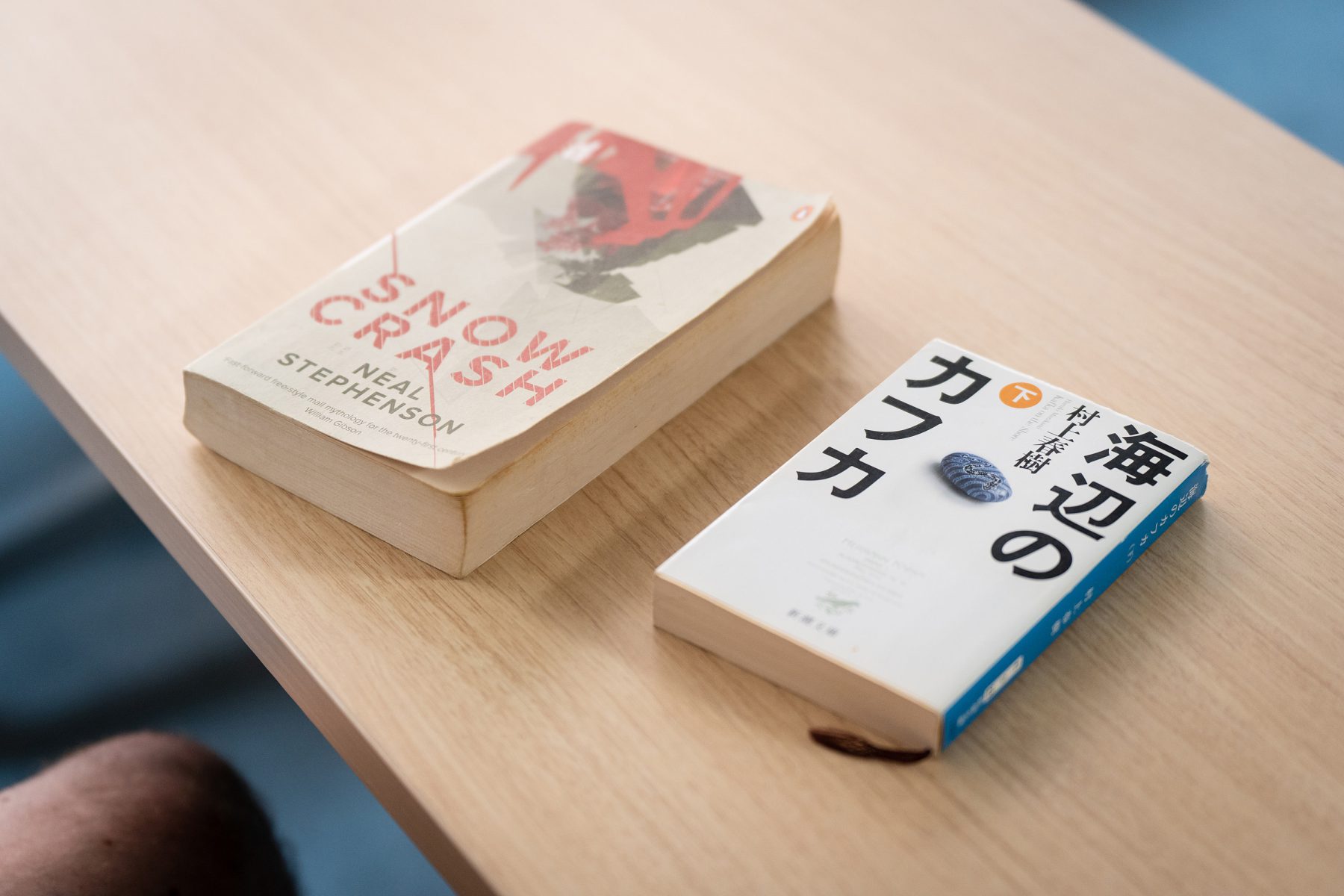
Two novels to build a career on
It’s kind of embarrassing as everyone else brought really impressive, technical textbooks, and here I am holding two novels: one science fiction and one by Haruki Murakami which I guess would be considered magical realism. These two books mean a lot to me for two totally different reasons and so I decided to cheat a little and bring two instead of one. Kafka on the Shore by Murakami Haruki is a book I’ve been reading since I became interested in Japan and during my study abroad days. It was also the first book I ever read completely in Japanese. It helped me remember a ton of kanji and learn about a more casual style of Japanese writing than I’d learned in my textbooks. It was also while I was reading the Japanese version for the first time that I realized I wanted to put in the effort to really learn the Japanese language, learn more about Japanese culture, and possibly move to Japan to live and work after college. It was this big milestone where I thought, okay, if I can read an entire novel in Japanese, then maybe I will have the language ability to live and work there as well. I’ve lived in Japan for nearly 10 years now, I’ve started a family here, and this was a big milestone for me along the way. I finally thought, yes, this is possible and this is something I want to do. That’s Kafka on the Shore.
The other book is Snow Crash. This is a book I read in high school and it really got me interested in the concepts of hacking and hackers, virtual reality, and the many possibilities there are for futures shaped by different core technologies. It’s a story of a cool, rogue, pizza-delivering ninja hacker who goes on to save the world from nefarious hackers. It’s really funny. Really fast-paced. Before I started to code or even think that I might want to be an engineer someday, this was one of the first times I thought, wow, people who can write code and build these programs can be really cool. That definitely planted a seed in my mind about the power of coding and how “cool” that power can be. I consider this book one of the first substantial nudges I received on the road to my current career.
Snow Crash / Umibe no Kafuka (Kafka on the Shore)
Snow Crash
Author: Neal Stephenson
Publisher: Penguin Books Ltd
Year Published: 2011
Umibe no Kafuka [Kafka on the Shore]
Author: Haruki Murakami
Publisher: Shinchosha
Year published: 2005


